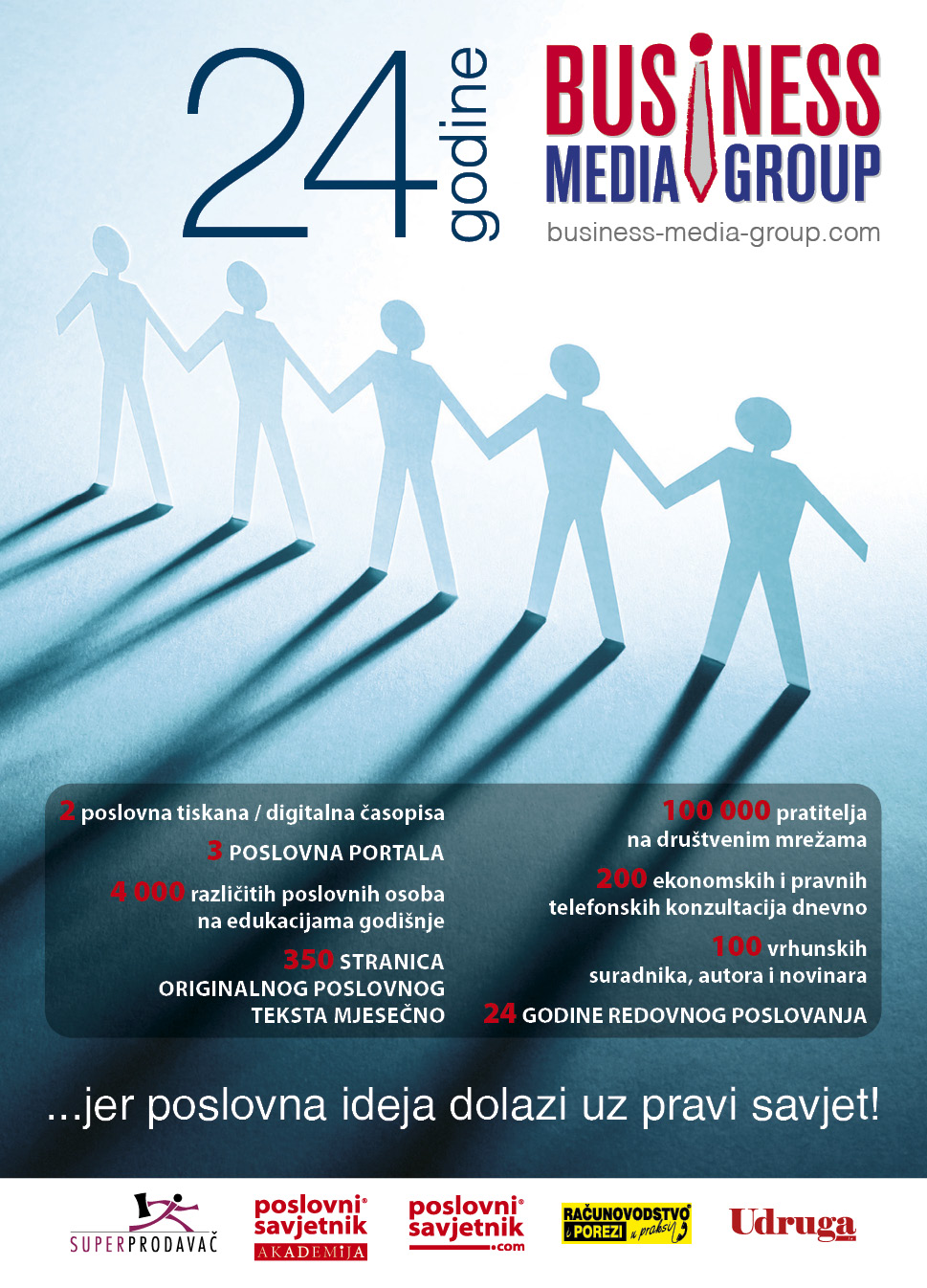John Lodder: How does the Titanic Syndrome affect you and your organization?

For the first time in our lives, all the people in our world experienced a global epidemic and most individuals are still trying and learning to cope with it. That is very difficult for many who experience massive consequences in their personal lives and families, in their organizations and societies. These consequences will affect us mentally and physically for a long time. We also see complete different reactions between cultures.
On one hand we see protesters in Western cultures who are claiming ‘the right of their individual freedom’ without accepting the inherent responsibilities of ‘freedom’; they are opposing all measures ordered by their governments. Often these protests are paired with heavy violence against a.o. police, fire (wo)men, paramedics; as well damaging buildings, cars, streets for millions of dollars / euro’s at cost of the taxpayers.
On the other hand we see Asian cultures where people obey their government because these people understand and accept the necessity to save the community of which they are a part of.
I was impressed hearing about the Chinese city of Xian that was complete closed and put in a full lockdown for more than a month, 3½ million people were even forbidden to leave their houses because ca. 100 people in Xian were tested covid positive.
As this week the lockdown finally ended the people of Xian were of course happy, but, especially they were thankful that the government had saved them from getting sick or even worse. No complaints what so ever.
It made me wonder why western protesters behave so egoistic. Why do ‘we’ do what we do? Why do ‘they’ use aggressive violence? Are ‘they’ behaving similar in their homes, families? Are they working in our organizations and companies, in our supermarkets or other service sectors? If yes, how do they behave at work?
This thinking reminded me of an impressive book called ˝21 lessons for the 21st century˝ of which I take a few paragraphs. This provides a good insight of the time in which we are living and offers good ideas about the future, in which direction could we go? This thinking helps to see a perspective and approach that a leader can use to rethink the strategy of their organization.
It also reminded me of the Titanic disaster in April 1912 of which we can learn a number of valuable leadership lessons. I write about this story and finish with a quick scan about ‘the Titanic Syndrome’ of which many organizations suffer today. This quick-scan has 15 questions to determine in which stage of change readiness your organization is in the present disruptive times.
The book ˝21 lesson for the 21st century˝ by Yuval Noah Harari is from 2018 and starts with a statement:
‘The art of reinvention will be the most critical skill of this century’ followed by a few questions that gives context:
1.Humankind is facing unprecedented revolutions, all our old stories are crumbling, and no new story has so far emerged to replace them. How can we prepare ourselves and our children for a world of such unprecedented transformations and radical uncertainties?
2.What should we teach a baby that will help this baby to survive and flourish in the world of 2050 or the 22nd century?
3.What kind of skills will children need in order to get a job, to understand what is happening around them, and to navigate the maze of life?
Unfortunately, since nobody knows what the world will look like in 2050, not to mention 2100, we don’t know the answers to these questions. Humans have never been able to predict the future with accuracy.
But today it’s more difficult than ever before because once technology enables us to engineer bodies, brains and minds; we will no longer be able to be certain about anything, including things that previously seemed fixed and eternal.
A thousand years ago, in 1018, there were many things people didn’t know about the future, but they were nevertheless convinced that the basic features of human society were not going to change.
It was clear that even in 1050 most people would still work as farmers and weavers, rulers would still rely on humans to staff their armies and bureaucracies, men would still dominate women, life expectancy would still be about 40, and the human body would remain exactly the same.
For that reason, in 1018 poor Chinese parents taught their children how to plant rice or weave silk; wealthier parents taught their boys how to read the Confucian classics, write calligraphy or fight on horseback, and they taught their girls to be modest and obedient housewives. It was obvious that these skills would still be needed in 1050.
In contrast, today we have no idea how China or the rest of the world will look in 2050. We don’t know what people will do for a living, we don’t know how armies or bureaucracies will function, and we don’t know what gender relations will be like. Some people will probably live much longer than today, and the human body itself might undergo an unprecedented revolution, thanks to bioengineering, brain chips and direct brain-to-computer interfaces.
Much of what kids learn today will likely be irrelevant by 2050. At present, too many schools focus on cramming information into kids’ brains. In the past, this made sense, because information was scarce and even the slow trickle of existing information was repeatedly blocked by censorship.
In this 21st century we are flooded with enormous amounts of information, and the censors don’t even try to block it. Instead, they are busy spreading misinformation or distracting us with irrelevancies.
If you live in some provincial Mexican town and have a smartphone, you can spend many lifetimes just reading Wikipedia, watching TED Talks, and taking free online courses. No government can hope to conceal all the information it doesn’t like.
On the other hand, it’s alarmingly easy to inundate the public with conflicting reports and red herrings.
People all over the world are but a click away from the latest accounts of the bombardment of Aleppo or melting ice caps in the Arctic, but there are so many contradictory accounts that it’s hard to know what to believe. Besides, countless other things are just a click away as well, making it difficult to focus, and when politics or science look too complicated, it’s tempting to switch to some funny cat videos, celebrity gossip, or porn.
In such a world, the last thing a teacher needs to give pupils is more information. They already have far too much of it. Instead, people need the ability to make sense of information, to tell the difference between what is important and what is unimportant, and, above all, to combine many bits of information into a broad picture of the world. So, what should we be teaching?
Many pedagogical experts argue that schools should switch to teaching “the four Cs” — critical thinking, communication, collaboration, and creativity. More broadly, they believe, schools should downplay technical skills and emphasize general-purpose life skills.
Most important of all will be the ability to deal with change, learn new things, and preserve your mental balance in unfamiliar situations. To keep up with the world of 2050, you will need to do more than merely invent new ideas and products, but above all, reinvent yourself again and again.
By 2048, people might have to cope with migrations to cyberspace, fluid gender identities, and new sensory experiences generated by computer implants. If they find both work and meaning in designing up-to-the-minute fashions for a 3D virtual reality game, within a decade, not just this particular profession, but all jobs demanding this level of artistic creation might be taken over by A.I.
By the middle of the 21st century, accelerating change plus longer lifespans will make our traditional model obsolete. Life will come apart at the seams, and there will be less and less continuity between different periods of life. “Who am I?” will be a more urgent and complicated question than ever before.
This is likely to involve immense levels of stress.
For thousands of years, philosophers and prophets have urged people to know themselves. But this advice was never more urgent than in the 21st century, because unlike in the days of Laozi or Socrates, now you have serious competition. Neuro marketing is using unconscious, emotional processes of the brain so Coca-Cola, Amazon, Baidu, and the government are all racing to hack you. Not your smartphone, not your computer, and not your bank account; they are in a race to hack you and your organic operating system. You might have heard that we are living in the era of hacking computers, but that’s not even half the truth.
In fact, we are living in the era of hacking humans.
Change is almost always stressful and, after a certain age most people just don’t like to change anymore.
When you are 15, your entire life is change. Your body is growing, your mind is developing and your relationships are deepening. Everything is in flux, and everything is new. You’re busy inventing yourself. Most teenagers find it frightening, but at the same time, it’s also exciting. New vistas are opening before you, and you have an entire world to conquer.
By the time you are 50, most people don’t want to change anymore and most people have given up on conquering the world. We’ve been there, we’ve done that. You prefer stability.
You have invested so much in your skills, your career, your identity, and your worldview that you don’t want to start all over again. The harder you’ve worked on building something, the more difficult it’s to let go of it and make room for something new. You might still cherish new experiences and minor adjustments, but most people in their 50s aren’t ready to overhaul the deep structures of their identity and personality.
There are neurological reasons for this. Though the adult brain is much more flexible and volatile than was thought a decade ago, it’s still less malleable than the teenage brain. Reconnecting neurons and rewiring synapses is hard work.
In the 21st century you can’t afford stability.
If you try to hold on to some stable identity, job, or worldview, you risk being left behind as the world flies by you with a whoosh. Given that life expectancy is likely to increase, you might subsequently have to spend many decades as a clueless fossil.
To stay relevant, not just economically but above all socially, you will need the ability to constantly learn and to reinvent yourself, certainly at a young age like 50.
The best advice I can give a 15-year-old is: don’t rely on the adults too much. Most of them mean well, but they just don’t understand the world anymore.
The New Normal
As strangeness becomes the new normal, your past experiences, as well as the past experiences of the whole of humanity, will become less reliable guides. Humans as individuals and humankind as a whole will increasingly have to deal with things nobody ever encountered before, such as super-intelligent machines, engineered bodies, algorithms that can manipulate emotions with uncanny precision, rapid man-made climate catastrophes, and the need to change your profession every decade. What is the right thing to do when confronting a completely unprecedented situation? How should you act when you are flooded by enormous amounts of information and there is absolutely no way you can absorb and analyze it all?
How do you live in a world where profound uncertainty is not a bug but a feature?
Mental flexibility and emotional balance
To survive and flourish in such a world, you will need a lot of mental flexibility and great reserves of emotional balance. You will have to repeatedly let go of some of what you know best, and learn to feel at home with the unknown.
Unfortunately, teaching kids to embrace the unknown while maintaining their mental balance is far more difficult than teaching them an equation in physics or the causes of the First World War.
You cannot learn resilience by reading a book or listening to a lecture. Teachers themselves usually lack the mental flexibility that the 21st century demands since they themselves are the product of the old educational system.
Hacking Humans
So the best advice I can give a 15-year-old: don’t rely on the adults too much. Most of them mean well, but they just don’t understand the world. In the past, it was a relatively safe bet to follow the adults, because they knew the world quite well, and the world changed slowly. But the 21st century is going to be different. Because of the increasing pace of change, you can never be certain whether what the adults are telling you is timeless wisdom or outdated bias.
So on what can you rely instead? Rely on technology? That’s an even riskier gamble. Technology can help you a lot, but if technology gains too much power over your life, you might become a hostage to its agenda.
Should you rely on yourself, then? That sounds great on Sesame Street or in an old-fashioned Disney film, but in real life, it doesn’t work so well. Even Disney is coming to realize it.
Most people barely know themselves, and when they try to “listen to themselves” they easily become prey to external manipulations. The voice we hear inside our heads is never trustworthy because it always reflects state propaganda, ideological brainwashing and commercial advertisements, not to mention biochemical bugs.
As biotechnology and machine learning improve, it will become easier to manipulate people’s deepest emotions and desires, and it will become more dangerous than ever to just follow your heart.
When Coca-Cola, Amazon, Baidu or the government knows how to pull the strings of your heart and press the buttons of your brain, will you still be able to tell the difference between yourself and their marketing experts?
If you don’t know what you want in life, it will be all too easy for technology to shape your aims for you and take control of your life.
To succeed at such a daunting task, you will need to work very hard at getting to know your operating system better, to know what you are and what you want from life. This is, of course, the oldest advice in the book: know yourself.
The algorithms are watching you right now. They are watching where you go, what you buy, who you meet. Soon they will monitor all your steps, all your breaths, all your heartbeats. They are relying on Big Data and machine learning to get to know you better and better. And once these algorithms know you better than you know yourself, they can control and manipulate you, and you won’t be able to do much about it. You will live in the matrix, or in The Truman Show. In the end, it’s a simple empirical matter: if the algorithms indeed understand what’s happening within you better than you understand it yourself, authority will shift to them.
Of course, you might be perfectly happy ceding all authority to the algorithms and trusting them to decide things for you and for the rest of the world. If so, just relax and enjoy the ride. You don’t need to do anything about it. The algorithms will take care of everything. If, however, you want to retain some control over your personal existence and the future of life, you have to run faster than the algorithms, faster than Amazon and the government, and get to know yourself before they do. To run fast, don’t take much baggage with you. Leave all your illusions behind. They are very heavy!
The mistakes, failures and the leadership lessons from the Titanic
The story of the Titanic is one of the best known and most illustrative failures of all times.
On April 14, 1912 The Royal Mail Steamer Titanic went from Southampton to New York, collided with an iceberg and sank within 3 hours. It lead to the death of 1,514 of the 2,224 passengers and crew.
The ship’s story is both famous and powerful because it holds lessons to be learned on how to create and prevent disasters.
The Titanic was the largest man-made moving object at that time and considered unsinkable by everyone:
by the experts, the media and the public. The ship was equipped with the most advanced naval technology available and it had a remarkable crew of some of the most experienced and respected naval leaders of their time. So the crucial question is: Why did the Titanic sink?
1 - Warnings
Most people know that the Titanic’s crew was aware of the dangerous icebergs in the area, but many don’t know how many times the crew was warned for an approaching iceberg: at least 6 times.
The last and most specific of the six was not passed along to the captain by the senior radio operator ‘Jack’ Philips because it was not marked with the prefix ‘MSG’ (Masters Service Gram) which required a personal acknowledgement from the captain.
Philips interpreted the message as not urgent and returned to sending messages for the first-class passengers to a receiver at Cape Race, New Foundland. Even worse, before the Titanic hit the iceberg Philips was so concerned with keeping the high-paying passengers satisfied that when interrupted with a warning of the upcoming icefield, he told Evans, radio operator of the passing ship ‘Californian’ ˝Shut up, shut up, I am working, Cape Race.˝
Lesson: Customer satisfaction
Customer satisfaction is absolutely needed. But pushing it for the wrong whim of every customer might accidentally push your business over the edge.
Chances are that your employees have near zero interaction with your customers and their needs. When it comes to suppliers it’s even worse, unless you are a buyer most believe it is the job of the procurement department to get insights and warnings from suppliers.
It is precisely the regular and deliberate connection with customers and suppliers that offers you rich insights and timely warnings of a possible crisis to be adverted.
Having most of your employees cut off from external partners creates real danger and increases the chance of missed opportunities.
2 - No practice
Titanic’s final voyage was also its very first, in fact, the ship came just out of the construction site and had only a few hours of test runs in open water before sailing the ocean. Neither ship nor crew had significant time to ‘get together’ and the most vital performance and safety procedures were never practiced.
Even more disturbing is that no safety drills were ever organized before or during the voyage, and nobody was in charge of passenger safety. The crew had no idea how to act in a disaster. No procedures were developed, and no skills were built for operating lifeboat equipment.
Lesson: The cost of no practice
Even though the ship had 2,224 passengers, it had only lifeboats for 1,200. With no lifeboat training the crew deployed many boats half empty; as a result, no more than 710 people were saved.
Just like any other competence, leading change can be learned and developed.
The problem is that most people in business are expected to perform improvisationally. We seldom hold ‘practice meetings’ or give teams times for ‘rehearsals’ before a project starts or commences.
When it comes to leading change the situation is more dire, when building our businesses we have a bias toward stability. Most companies are built with an assumption that the situation will remain stable and predictable with a relatively low volatility. Take the budgeting process as example. For a typical publicly traded company, the budget is set once a year and adjustments are made quarterly.
But what happens when markets get dangerously volatile or a global pandemic hits?
3 - Past success
On the night of the collision the ship’s captain had already gone to bed. Murdoch was left in charge of the ship. Murdoch had 16 years of experience and was known for his ‘cool’ head, quick thinking and professional judgement. Murdoch was particularly famous for his masterful track record of averting ship collisions. Of course Murdoch trusted himself and relied fully on his successes of the past to make executive decisions in the present. Unfortunately it didn’t help him in the 37 seconds between the first sighting of the iceberg and the collision with the Titanic.
Lesson: What got you here will not get you there; instead, your pat success might actually destroy your every dream.
While practice is crucial to work out the details, it’s essential to use past experiences deliberately and intelligently. Practice gets you prepared but can quickly turn into overconfidence or refusal to change.
Companies large and small have a love affair with the mantra ˝We’ve always done it this way˝.
However, as lots of research summarized by Fast Company suggests, past experience can be deceiving and dangerous.
It’s important for leaders to understand their teams’ tendency to overgeneralize from past experiences.
Just because one product launch worked well doesn’t mean the same approach will work equally well for the next one.
4 - No binoculars
The night of the collision was clear and still. 15 meters above the deck in the ‘crow’s nest’ Mr.’s Fleet and Lee worked their two hour shift. Inside the nest they had a large bell to grab attention and a telephone to reach the captain’s bridge. What they did not have, however, was a pair of binoculars.
Lesson: A company’s ability to adapt to change is often seen as an issue of motivation and commitment.
Motivation is important but it can only take you so far. No matter how motivated and committed to success your people are, if they don’t have ˝binoculars˝, the tools they need the most to deliver, your efforts are useless.
User-friendly technology, solid assets, smart business processes and well-oiled management systems must be at the fingertips of employees to be able to perform when it matters most.
One hundred years later, with all advances in modern technology, it’s still hard to imagine any ship in open waters without binoculars.
The Titanic had a few pairs of binoculars on board but they were locked up in a storage cabinet. The key was held by second officer Blair, who in a last minute leadership change decision was asked to leave the Titanic for another assignment. Leaving the Titanic last minute and very disappointed, Blair forgot to hand the key to his replacement.
It’s obvious that the cabinet or its lock could be broken. However, nobody made the call.
Lesson: Blinding overconfidence
Lookout Fleet who survived the disaster would later insist that if binoculars would have been available, the iceberg would have been spotted in enough time for the ship to take action. ‘The use of binoculars would have given ˝enough time to get out of the way˝ Fleet said.
This was quite literally the case of ‘blinding overconfidence’.
The binocular story also highlights that major leadership decisions were made when the Titanic was already in progress. David Blair was one of the top three executives in charge of the ship when it left for its maiden voyage. However, he was asked to leave the ship last minute, taking the key to the binoculars cabinet with him.
Moving people the same way you move furniture, without full understanding of their scope of responsibility, is a recipe for disaster.
The iceberg
Whenever working with a company or discussing the Titanic story, the iceberg is among the first causes mentioned. Most of the times when we are asked to work with a company on change or reinventing its products, processes or the entire business model, we are not there during the good times.
By the time we are called, things are already deteriorating: ‘the iceberg has already been hit.’
And yes, it’s so easy to blame the iceberg, and this iceberg can take many forms:
Sneaky competitors, overbearing regulators, bureaucracy, lousy weather, late suppliers, bad design, lazy customers, the finance-department, the employees etc. etc.. We’ve heard it all. It’s so easy to blame your problem on someone else.
Lesson: Here is the thing: While you cannot prevent the iceberg from appearing, you can certainly make sure you don’t hit it.
The choice is in your hands!!
To help you make it practical, this quick-scan gives you a fast insight if your company is suffering from the Titanic Syndrome.
- The quick scan has 5 questions about your company’s status on anticipating change, 5 questions on designing change and 5 questions on implementing change.
- You can score each question by circling it from 0 to 5, zero being: ˝This is nothing like our company˝ and 5 being: ˝This is 100% our company˝.
- Assess the relevance of each statement for your organization. You can also use this scan to score yourself and/or a team.
Most fun and valuable is if you let this scan do by more people, then exchange the results openly and see what surprising and brilliant ideas come at the table.
Organizations where we used this tool were surprised and enthusiastic about the failures, the possibilities and opportunities they unexpectedly discovered.
You can open and download the quick scan (2 pages) by clicking on the attachment.
In this column I cited from 21 LESSONS FOR THE 21ST CENTURY by Yuval Noah Harari, and I used materials from a reinvention and change training and a book by Prof. Dr. Nadya Zhexembayeva. (ps/sm)


























